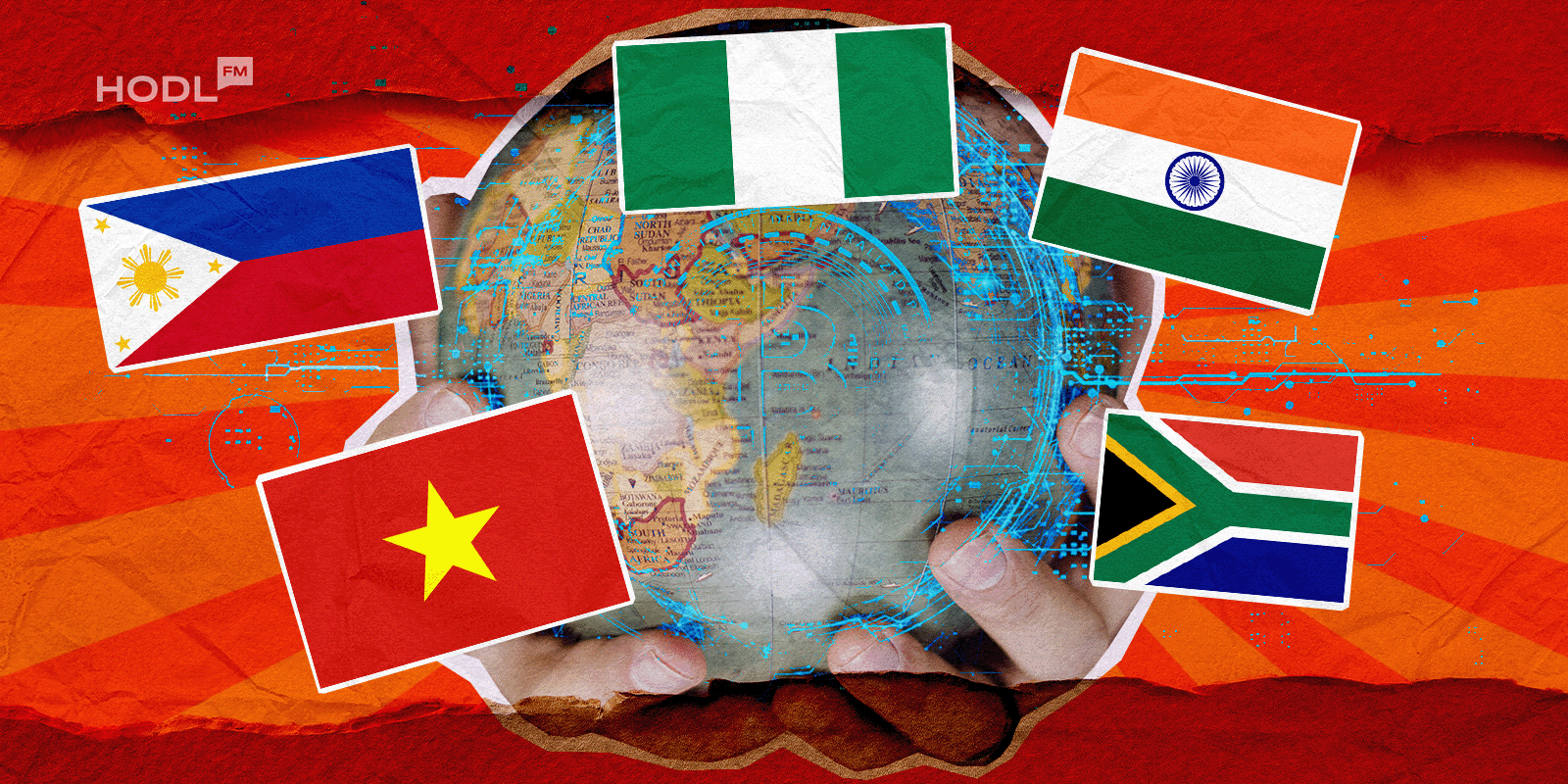According to Consensys, a leading blockchain and Web3 technology firm, countries like Nigeria, India, and South Africa are leading the charge in adopting crypto and Web3 technologies. In fact, these markets are now outpacing more traditional players in the crypto space—they are the underdogs in every sense of it.
Consensys recently released its 2024 Global Survey on Crypto and Web3, conducted with YouGov, which polled over 18,000 people across 18 countries.
The numbers are in!🗞️
— Consensys (@Consensys) December 10, 2024
Today, we published our 2nd annual Global Crypto and Web3 Survey conducted in partnership with @YouGov, spanning 18 countries and over 18,000 participants.
We have a few key insights to share highlighting major trends, insights, and opportunities for the… pic.twitter.com/bZrQjellFI
The findings? Emerging markets are embracing crypto at an unprecedented rate.
Nigeria, for instance, boasts a staggering 99% awareness rate of cryptocurrencies among its population, with 77% claiming a solid understanding of how they work.
Meanwhile, South Africa and India are also seeing significant growth in crypto ownership and interest in blockchain technologies.
So, what’s driving this surge? For starters, emerging markets often face barriers to traditional financial systems—think limited access to banks or high transaction fees.
Cryptocurrencies offer a way around these hurdles by providing decentralized, borderless financial solutions. Blockchain technology also promises greater transparency and security for transactions, which is particularly appealing in regions where trust in traditional institutions may be shaky.
Joseph Lubin, Co-Founder of Ethereum and CEO of Consensys, highlights how Web3—the decentralized internet built on blockchain—aligns with the aspirations of these markets. He notes that Web3 provides “far greater economic, social, and political agency for all people and communities,” which resonates strongly in countries seeking more control over their digital identities and financial futures.
In Nigeria alone, 84% of respondents reported owning at least one crypto wallet. And it’s not just about Bitcoin anymore; interest is growing in NFTs (non-fungible tokens) and other blockchain-based assets.
A whopping 94% of Nigerians aware of NFTs plan to acquire them within the next year. Clearly, crypto has gone beyond the normal trend here—it’s becoming a lifestyle.
One standout finding from the Consensys survey is the shift from merely using crypto to owning it—and not just owning digital assets but taking control of one’s online presence. This is particularly evident in emerging markets where decentralization offers solutions to frustrations with Web2 platforms (think Facebook or Google), which have been criticized for exploiting user data without fair compensation.
In Nigeria and South Africa, for example, respondents expressed strong desires for more control over their online identities and data privacy. Over half believe that decentralization could improve traditional banking systems and even social media platforms. In addition to giving people more control over their money, this is also about changing the way people use technology in a fundamental way.
The stats back up this narrative. In addition to Nigeria’s dominance in crypto adoption:
- South Africa has 77% of respondents likely to invest in cryptocurrencies within the next year.
- India isn’t far behind with 58% expressing similar intentions.
- Even smaller markets like the Philippines (59%) and Indonesia (54%) are showing significant interest.
Compare this to Europe or Japan, where adoption rates remain sluggish—only 15% of UK respondents showed interest in buying crypto anytime soon. The U.S., while better at 41%, still lags behind its emerging-market counterparts.
Crypto’s Next Frontier Isn’t Where You Think
— Mario Nawfal’s Roundtable (@RoundtableSpace) December 12, 2024
Nigerians are all in - 93% are ready to dive into crypto next year. South Africans? 77%.
The Philippines, India, and Indonesia are clocking in at 59%, 58%, and 54%.
Meanwhile, in the UK, only 15% are game. The US hits 41%.
The… pic.twitter.com/tMJ7yzfWH9

Disclaimer: All materials on this site are for informational purposes only. None of the material should be interpreted as investment advice. Please note that despite the nature of much of the material created and hosted on this website, HODL FM is not a financial reference resource and the opinions of authors and other contributors are their own and should not be taken as financial advice. If you require advice of this sort, HODL FM strongly recommends contacting a qualified industry professional.





